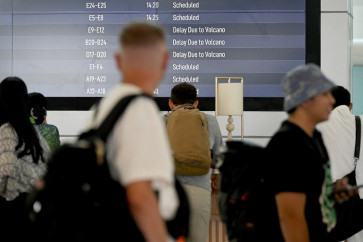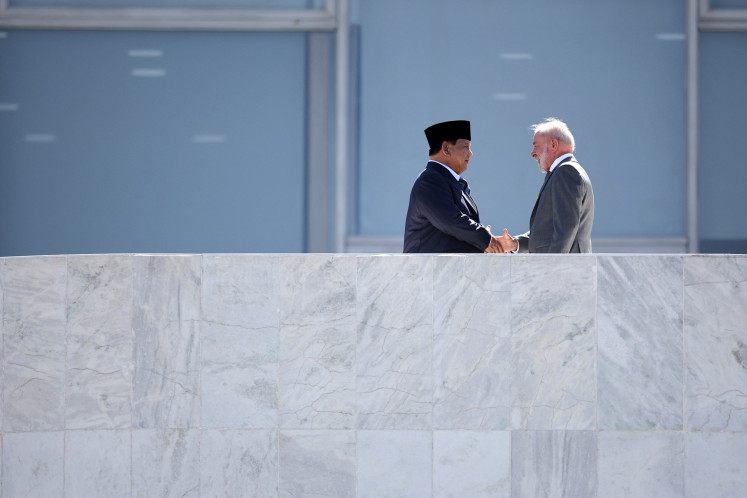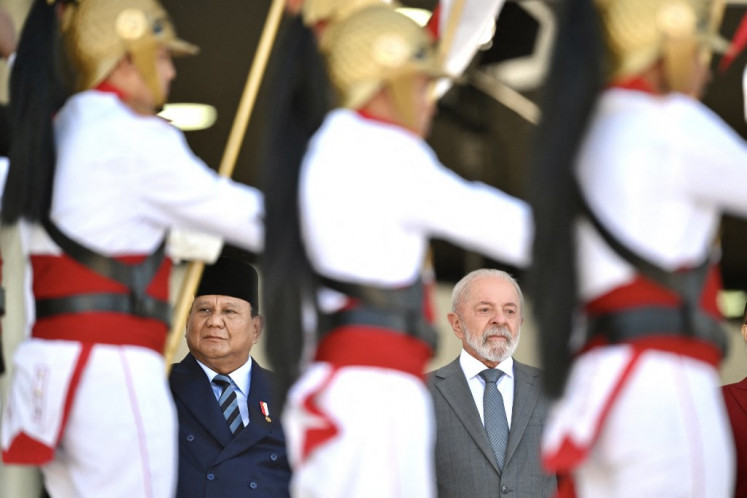Popular Reads
Top Results
Can't find what you're looking for?
View all search resultsPopular Reads
Top Results
Can't find what you're looking for?
View all search resultsEditorial: Central bank independence
Bank Indonesia (BI) should not be influenced by Vice President Jusuf Kallaâs demand for a lower interest rate even though inflationary pressures have eased over the past two months
Change text size
Gift Premium Articles
to Anyone
B
ank Indonesia (BI) should not be influenced by Vice President Jusuf Kalla's demand for a lower interest rate even though inflationary pressures have eased over the past two months. BI Governor Agus Martowardojo has made the right decision to maintain the benchmark interest rate at 7.5 percent in view of the uncertainty in the global economy and widely expected monetary tightening by the US Federal Reserve later this month.
We understand that as a politician, Kalla, who thinks mostly in terms of a five-year tenure, wants to provide stimulus to the economy and reinvigorate the business sector within the short term. Moreover, the lending rate in Indonesia is among the highest in the ASEAN region, caused by the unusually high inflation rate and logistics costs.
But we should also realize that the monetary issue is only one of the key factors affecting economic activities, with fiscal management and the level of macroeconomic competitiveness as the other prerequisites.
The government should resolve different views with BI at the Financial Sector Stability Coordination Forum (FKSSK). Policy bickering in public between top politicians and the monetary authority would only confuse people, notably the business sector, causing uncertainty.
The 1998 banking and economic crisis had partly been blamed on the too heavy intervention by the authoritarian government of then president Soeharto into the central bank, which was then part of the Cabinet.
That was why the BI Law was changed in 1999, making it a politically independent institution. BI's basic goal is to achieve and maintain rupiah stability (closely related to inflation) and to achieve this goal BI formulates and implements monetary policy, regulates and maintains a smooth payment system and conducts macro-prudential supervision of the banking industry.
Most other countries also have chosen an independent central bank because of the need to control inflation, as politicians who think mostly in short terms tend to pressure the central bank to follow an expansionary monetary policy.
Voters, as represented in the House of Representatives, which enacted the BI Law, prefer to give unelected
technocrats power over monetary policy because they think they will do a better job than politicians who have an eye on the next election.
Politicians should leave central bankers to choose their tools. It is, after all, what the bankers are good at. So Kalla, we think, was wrong to exhort BI to lower the interest rate. For their part, central bankers need to become more open'to explain to investors, politicians and voters the logic behind their actions and the monetary tools. Transparency will help protect them from political meddling.
We also realize that maintaining central bank independence was a lot easier when monetary policy was simpler as it was in the past. But that does not mean the effort should be abandoned. The more important BI's role becomes, the more important it is for politicians to keep their noses out of the central bankers' business.










